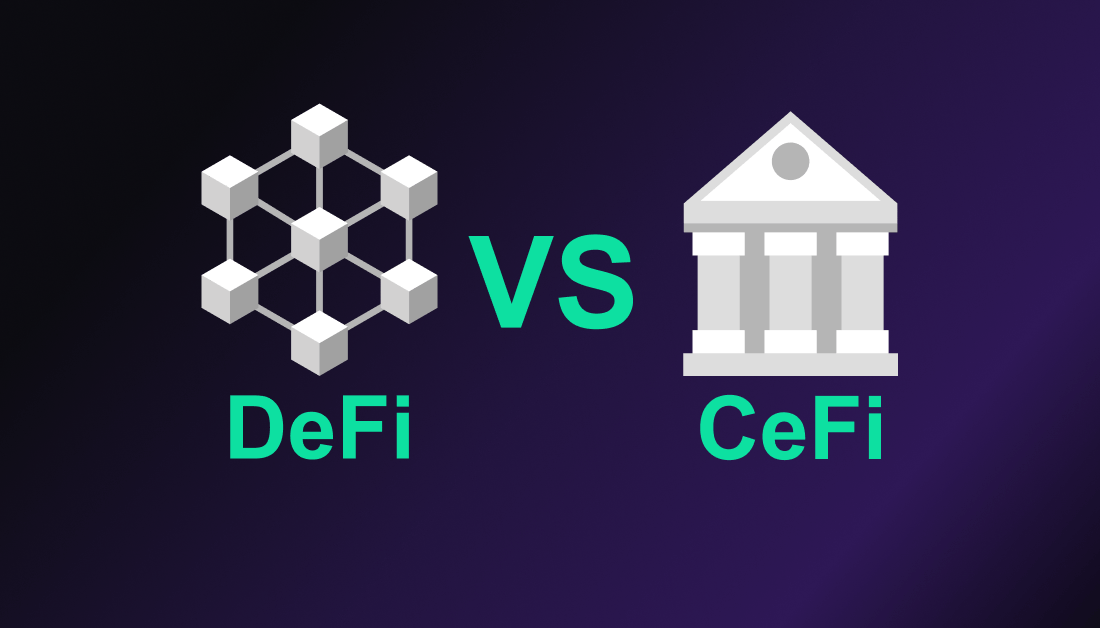
If you invest in crypto or want to start investing, you will likely look into buying, t your crypto assets on a Centralized (CEX) or Decentralized (DEX) exchange.
This week’s educational Guide outlines the difference between the two exchanges, lists various examples of CEXs and DEXs, and dives deeper into the advantages and disadvantages.
What is a crypto exchange?
A cryptocurrency exchange is where you can buy and sell crypto. You can find different combinations of cryptocurrencies to trade on a crypto exchange. For example, you can trade Bitcoin for US Dollars (BTC/USD), Bitcoin for Euros (BTC/EUR), or Ethereum for US Dollars (ETH/USD). Decentralized exchanges, however, only let you trade one cryptocurrency for another, like Ethereum for USDC (ETH/USDC).
A crypto exchange can do two types of trading: spot and futures. Spot trading is when you buy a cryptocurrency to own it. In futures trading, you buy the right to purchase the crypto while speculating on the market.
Image Source: Newsum
How does a Centralized Exchange (CEX) work
A centralized cryptocurrency exchange, operated by a third party, oversees transactions, safeguards assets, and offers the infrastructure for trading. Transactions occur primarily off-chain on the exchange's central server. Such exchanges are subject to regulations like KYC and AML to maintain legality.
Centralized exchanges, favored by regular users, function as intermediaries between cryptocurrency buyers and sellers. Users deposit cryptocurrencies into exchange-controlled wallets for trading while the exchange manages trades, custody, and regulatory compliance.
A couple of well-known examples of CEXs are: Deskoin, Binance, Coinbase, and Kraken
How does a Decentralized Exchange (DEX) work
Decentralized exchanges (DEXs) have emerged as alternatives to centralized exchanges (CEXs) in the past few years. Unlike CEXs, DEXs operate without intermediaries, relying on blockchain technology and transparent smart contracts for direct peer-to-peer transactions.
In DEXs, transactions are facilitated through wallets. Most of the time DEXs do not require a KYC, allowing them to stay anonymous. “Not your keys, not your coins”, is often a term referred to by those using Decentralized Exchanges, as CEXs often hold custody of assets, where DEXs allow users to manage their private keys and secure their funds. r regulatory oversight, instead relying on automated market makers to match trades.
A couple of well-known examples of DEXs are: Uniswap, Hashflow, Paraswap, Chainflip, and 1Inch
Advantages and disadvantages:
Centralized exchanges (CEXs) have several advantages, including user-friendly interfaces, a wide variety of crypto for people to trade, and more liquidity. Furthermore, since CEXs are regulated, institutional investors and traders are more keen on using the exchanges. On the other hand, decentralized exchanges (DEXs) present benefits like privacy, which caters to those without access to traditional bank accounts. and they have reduced transaction fees. DEXs also have lower transaction fees and allow users to lend, borrow, and stake on the dapps.
Nevertheless, both exchanges have their drawbacks. CEXs don’t allow users direct control over wallet keys, leaving users vulnerable to losing their assets in case of fraud, shutdown, or bankruptcy – for example, with what happened to FTX.
Unlike CEXs, DEXs typically hold less liquidity due to a smaller user base. Furthermore, the lack of regulation exposes DEXs to potential illegal activities, discouraging participation from more significant investors. Finally, DEXs often need more comprehensive customer support, which can be challenging for users who need assistance.
Final Remarks
Your digital asset security depends on your needs, and your chosen exchange best fits those. Both centralized and decentralized exchanges have advantages and disadvantages; understanding both is key to ensuring your assets stay safe.
We post educational Guides regularly covering topics from DeFi to NFTs and Crypto security. Stay tuned for more.




